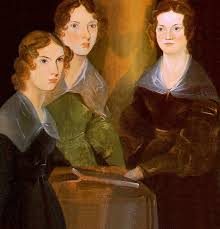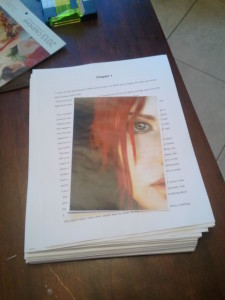




 Amazing amazing amazing. Those are my choice of words to describe the creative level of writing displayed by Jude Morgan here. I recently finished a certain book covered in another post that had won an award for being gloomy: I didn’t see the appeal. Charlotte and Emily was the kind of book I think should have awards.
Amazing amazing amazing. Those are my choice of words to describe the creative level of writing displayed by Jude Morgan here. I recently finished a certain book covered in another post that had won an award for being gloomy: I didn’t see the appeal. Charlotte and Emily was the kind of book I think should have awards.
Why is there no gold star on this book?
How come Oprah isn’t putting her book club sticker on it?
Not violent enough, not immoral enough, not enough social issues.
Bull-crap I cry.

I gotta do baby insanity wolf on this one.
This is the sort of novel that should receive acclaim, by the simple (and yet so rare) virtue of the level of skill and talent Jude Morgan displays in bringing the written word to life.
Jude Morgan authentically covers the real life story of the Bronte sisters Charlotte, Emily and Anne alongside their virulent brother brother Branwell and their storybook caricature of a clerical father. Growing up in the wild moors of Northern England the four siblings were unusually encouraged to read from their fathers extensive library.
Having no playmates, no mother, little sense of what was ‘accepted’ and ‘normal’ for children; the Bronte children developed unusually keen and creative minds. They developed between them a fantasy world that became more real than the limited prospects their real futures seemed to hold.
Both here in fiction as in reality, Charlotte and Emily Bronte grew up in what seems a totally colorless and still world; only to produce a vitality of life in their novels that are considered paramount English classic literature.
Their alternating humorous and sad; shuttered and suffocated, experiences only served to grow the garden of their talent and I can’t think of a better way to beautifully express it than the way it’s handled in Charlotte and Emily.
With the most fantastic creative writing style I’ve seen in ages and ages, Morgan takes you through their struggles to learn and to write, to find their place in a world that seemed to have no place for them. Although easy to read, each page is brimming with fresh perspective and clever descriptions. Morgan has an amazing knack for handling metaphors, similes and simple descriptions. Here are a few examples plucked out of context.
“Charlotte listens: gropes for the homely shape in that raving puzzle of noise.”
“So: it is not so much that your life has changed; rather, it has fallen from a great height, and smashed, and now you must move about among the jagged fragments.”
I wish I could write like this! This is a lovely and haunting book that celebrates the mind and deplores the wasting of it. I highly suggest reading this, for you come to know the four Bronte children in a way you never could simply reading a biography or gazing with your own eyes on the landscape of their home.
One of histories greatest tragedies is that these women never knew how much they would mean to countless generations of women after them.











